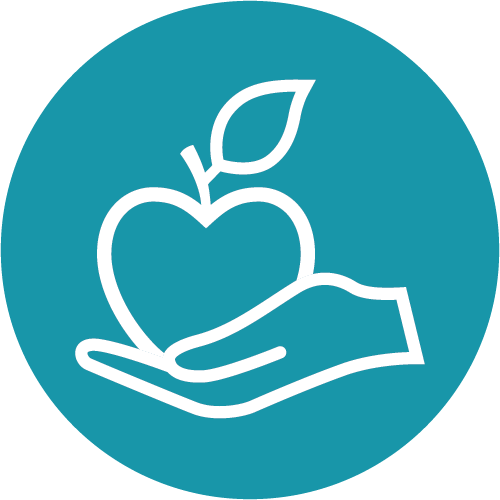With over 48 years of experience, Child Care Resource Center (CCRC) is one of the state’s largest family resource organizations, serving over 100,000 children, families, and child care providers every month. CCRC’s theory of change builds partnerships across systems to improve child, family, and community well-being by providing resources and concrete support to families, paying for child care and parent job training, and coaching and mentoring child care providers while providing items such as food and diapers.
The programs outlined here address three urgent issues providing immediate, short-term, and long-term support by enhancing our current case management services to offer critically needed developmental screenings, food insecurity among children and families and working with businesses to increase the child care supply for working families.

Funding Priority 1:
Enhance case management services to offer developmental screenings

Funding Priority 2:
Alleviate food insecurity among children and families

Funding Priority 3:
Partner with businesses to improve child care accessibility for working families

Enhanced Case Management for Developmental Screenings
Siloed resources and limited prevention efforts continue to inhibit early intervention services for children and families with developmental and mental health issues. CCRC proposes to build an expanded health care screening system for child, family, and care providers. California has struggled to secure a successful system of services for whole-child supports in community-based settings in the past. Many of the mechanisms available rely on overburdened local jurisdictions like counties to execute and administrate contracts, compounded with not only the stigma of mental health but the emerging problem of the dwindling availability of services. Currently, CCRC has a pilot program in San Bernardino County assessing children using the tool, Ages And Stages, and making referrals to Loma Linda Hospital. The agency also has a 2nd pilot to conduct a similar prevention strategy in the Antelope Valley to identify child and family challenges and make referrals.
We plan to hire consultants to identify sources to secure the match needed to access the funds and to convince the Legislature and the Governor that screening and intervention in the earliest years will ameliorate issues children often face when their challenges are ignored until they are in school. Less than 6% of all children access any mental health care at all and less than 3% receive ongoing care. For the last 5 years we have been developing a coordinated system to support parents through parent cafés through the 60 California Child Care Resource and Referral Agencies which also manage the vouchers for under resourced families. We are sponsoring a 2-year bill and we have also been in discussion with the Department of Finance about drawing down some portion of the $300 million which requires a local match of 35%.
Redefining the current delivery model will increase critically needed prevention and care while enhancing the economic benefit of safety net systems to the communities and individuals these systems were intended to serve.

Food Insecurity Safety Net
Nearly 1 in 5 Californians – about 8 million people – currently experience food insecurity. As food prices continue to soar, the need for accessible and affordable food is exceptionally high. By partnering with commercial food manufacturers, local agriculturalists, food rescues, donors and pantries, CCRC will work to create a sustainable food distribution program for 1,000 children and their families.
CCRC has distributed more than one million food items to under resourced families over the past five years. With a $350,000 grant, CCRC will provide 100 licensed family child care providers receiving subsidized child care payments with virtual training in nutrition education and meal planning. This group will commit to a six-month program to educate and distribute weekly meal starter kits and recipes to 500 children in their care. A new cohort of 100 providers will begin every six months for a total of 600 providers engaged over three years serving 3,000 children. The costs of these Milestones & More Nutrition Boxes will include child development and online training for staff, digital and print educational materials, and food.
Empowering child care providers and families with the knowledge and access needed to raise healthy children will ensure the success of future generations to come. We have secured funding for a refrigerated truck and on-site refrigerators. Teaching children about nutrient-dense foods and beverages in care setting and having it as part of the normal household meal routine helps children observe and learn healthy behaviors that extend into adolescence and adulthood.

Business Outreach Leader and Connector
A CCRC Business Outreach Leader (BOL) would educate and consult with California employers regarding child care benefit programs that help increase output while providing families with reliable care and, by extension, supporting the local economy. The BOL will provide early care and business expertise needed to promote the many benefits, but they would be able to assist employers in developing their own programs. A U.S. Bureau of Labor Statistics report shows that in 2021, 32.8 million families – or two-fifths of all families – included children under the age of 18. The majority of these parents and caregivers are employed, meaning they rely on child care to work. According to CCRC research, 99 percent of CCRC families surveyed stated they were either able to accept a job or keep their job because of their child care. If employers provide on-site child care, stipends for child care and create the awareness and education of available programs, their employees would be more able to consistently work scheduled shifts, as well as overtime.
A study of California corporations found that 55 percent of employers are considering adding child care accommodations as part of the benefit package. CCRC’s BOL can be the conduit that is needed to help create these systems. A 2019 article published by American Progress found that the cost of lost earnings, productivity, and revenue nationally due to the child care crisis totals an estimated $57 billion each year. The financial implications of employer-offered child care would be profound, lifting many families out of poverty by offering child care assistance so they can work without interruption. With over 46 years of administering child care programs and services, CCRC has worked with legislators, funders, child care providers and families. This expertise puts CCRC in a unique position to facilitate this movement and connect the involved businesses and employees to both be successful.
For questions regarding the funding priorities please contact Bill Swindle, Communications Manager [email protected]

